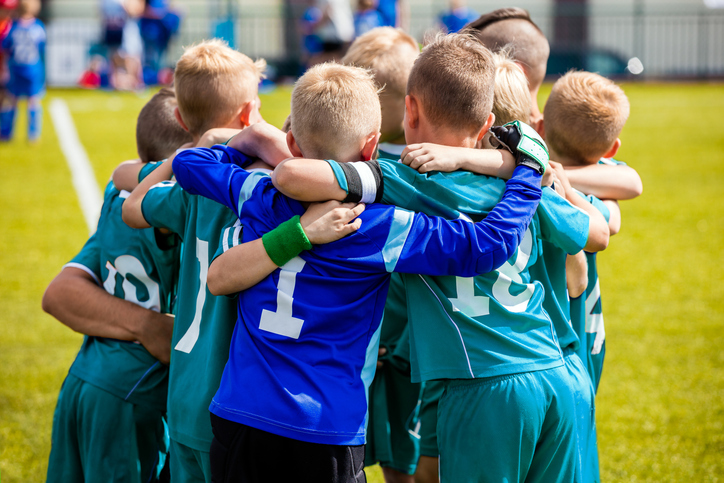Watch this powerful real story and listen to the effects and consequences of parental alienation.
Parental alienation refers to a situation in which one parent attempts to manipulate or influence a child’s feelings, thoughts, and behaviours to turn them against the other parent, often during or after a divorce or separation. It typically involves one parent (the alienating parent) engaging in behaviours that undermine the child’s relationship with the other parent (the target parent) with the intention of creating distance, hostility, or estrangement between the child and the target parent. These behaviours can take various forms, including:
- Negative Talk: The alienating parent may consistently speak negatively about the target parent, portraying them as bad, dangerous, or uncaring. They might make false accusations or exaggerated claims to damage the child’s perception of the other parent.
- Limiting Contact: The alienating parent may attempt to restrict or interfere with the child’s access to the target parent. This can involve withholding visitation, interfering with phone calls or communication, or failing to cooperate with parenting schedules.
- Sabotaging the Relationship: Some alienating parents may create situations designed to sabotage the child’s time with the target parent, such as scheduling conflicting activities or appointments during visitation times.
- Alienating Behaviour: The alienating parent may encourage the child to reject or resist the target parent, even when the child initially wants to maintain a relationship with both parents. This can involve emotional manipulation, guilt-tripping, or bribery.
- False Allegations: Allegations of abuse, neglect, or other serious misconduct against the target parent, without evidence or validity, are sometimes used to manipulate the child and the legal system.
Parental alienation is considered harmful to children because it can lead to emotional and psychological distress. It can also have long-lasting negative effects on the child’s relationship with the target parent, their self-esteem, and their overall well-being. Courts and mental health professionals often address parental alienation in custody disputes by attempting to assess the situation, provide therapy or counselling, and establish strategies to rebuild and maintain a healthy relationship between the child and the target parent.
It’s important to note that parental alienation is a complex issue, and allegations of alienation should be carefully examined and substantiated before any actions are taken. Legal and mental health professionals play crucial roles in evaluating and addressing cases of parental alienation to ensure the best interests of the child are upheld.

 A survey was conducted at a primary school where children between the ages of 4-8 were asked “what is love”. The answers they got were broader and deeper than anyone could have imagined.
A survey was conducted at a primary school where children between the ages of 4-8 were asked “what is love”. The answers they got were broader and deeper than anyone could have imagined. Not sure about other dads but I entered the world of fatherhood completely unprepared. I didn’t realise how demanding it was going to be, I think women have a better advantage. Women group together and talk about parenting, share stories and experiences far more than we ever would. So it is probably no surprise that their skills, ability and knowledge are more fine tuned when children arrive on the scene.
Not sure about other dads but I entered the world of fatherhood completely unprepared. I didn’t realise how demanding it was going to be, I think women have a better advantage. Women group together and talk about parenting, share stories and experiences far more than we ever would. So it is probably no surprise that their skills, ability and knowledge are more fine tuned when children arrive on the scene. Even though separation and divorce is common place, it still feels like failure and in some ways we are embarrassed at times because of it. We get pigeon holed into “single dad” or “separated father” when in fact we are simply a “dad” or a “father”.
Even though separation and divorce is common place, it still feels like failure and in some ways we are embarrassed at times because of it. We get pigeon holed into “single dad” or “separated father” when in fact we are simply a “dad” or a “father”. Dear Mum and Dad,
Dear Mum and Dad,

 Most of us enter fatherhood with very little knowledge on how to raise a baby let alone bring up a good human being. We’ve held our nephews and nieces in our arms but feeding, cleaning, soothing, burping, changing nappies, nurturing is something that we are thrown into…and I mean thrown.
Most of us enter fatherhood with very little knowledge on how to raise a baby let alone bring up a good human being. We’ve held our nephews and nieces in our arms but feeding, cleaning, soothing, burping, changing nappies, nurturing is something that we are thrown into…and I mean thrown. Bonding, probably one of the most pleasurable parts of infant care, happens during the sensitive time in the first hours and days after birth when parents make a deep connection with their infant. Physical closeness can promote an emotional connection.
Bonding, probably one of the most pleasurable parts of infant care, happens during the sensitive time in the first hours and days after birth when parents make a deep connection with their infant. Physical closeness can promote an emotional connection. You’ll probably decide before you bring your baby home whether you’ll use cloth or disposable nappies. Whichever you use, your little one will dirty nappies about 10 times a day, or about 70 times a week.
You’ll probably decide before you bring your baby home whether you’ll use cloth or disposable nappies. Whichever you use, your little one will dirty nappies about 10 times a day, or about 70 times a week. Tub baths. When your baby is ready for tub baths, the first baths should be gentle and brief. If he or she becomes upset, go back to sponge baths for a week or two, then try the bath again.
Tub baths. When your baby is ready for tub baths, the first baths should be gentle and brief. If he or she becomes upset, go back to sponge baths for a week or two, then try the bath again. Whether feeding your newborn by breast or a bottle, you may be stumped as to how often to do so. Generally, it’s recommended that babies be fed on demand — whenever they seem hungry. Your baby may cue you by crying, putting fingers in his or her mouth, or making sucking noises.
Whether feeding your newborn by breast or a bottle, you may be stumped as to how often to do so. Generally, it’s recommended that babies be fed on demand — whenever they seem hungry. Your baby may cue you by crying, putting fingers in his or her mouth, or making sucking noises. As a new dad, you may be surprised to learn that your newborn, who seems to need you every minute of the day, actually sleeps about 16 hours or more!
As a new dad, you may be surprised to learn that your newborn, who seems to need you every minute of the day, actually sleeps about 16 hours or more! I was a little nervous, I just had to step up , plan and ensure it all worked. I very quickly got in the swing of things and it worked out well. The rest is history!
I was a little nervous, I just had to step up , plan and ensure it all worked. I very quickly got in the swing of things and it worked out well. The rest is history! When we were out and about, and it came time to take her to the toilet or maybe I needed to go? she came with me and simply buried her face into my shoulder when we walked through the mens to the cubical, Always a good time to try and get them to go too, even if they don’t feel like it. When she was big enough to go on her own, I would stand near the door of the female toilets and didn’t move until she came out. The wheel chair access toilets are gold!!
When we were out and about, and it came time to take her to the toilet or maybe I needed to go? she came with me and simply buried her face into my shoulder when we walked through the mens to the cubical, Always a good time to try and get them to go too, even if they don’t feel like it. When she was big enough to go on her own, I would stand near the door of the female toilets and didn’t move until she came out. The wheel chair access toilets are gold!!






















New dad tips for parenting infants and toddlers
Parenting infants and toddlers is amazing, rewarding and frustrating and it can happen all in the same day.
Imagine being a toddler for just a minute…they can’t articulate clearly what you want, they are completely managed by a parent, given food that you might not like, dressed and changed multiple times a day and restricted to the confines of a play pen, bed or high chair.
All very normal and right but it can cause the child to occasionally throw a tantrum and its these moments we find the most difficult.
There are somethings dad you can do to help reduce the stress in your household and possibly make tantrums less frequent, such as:
Love is the first step
Not to many rules
Don’t bombard your child with to many rules, make your home child safe so they can crawl around where ever they want without being told “not’ to do or touch that. It can eliminate one frustration. Your child might start to get frustrated if you are saying “no” all the time, so look for many opportunities to say “yes”.
If you are getting a lot of “no’s” try not to react, simply repeat the request in a nice calm voice. Is there some way you can make what your’e asking your child to do that could be made more fun? All aged children prefer to do tasks that are fun and enjoyable.
Give them choices
If its changing into PJ’s and he or she doesn’t want to, try getting two out for them to choice which one they would prefer to put on. Same goes with going to bed, its always a trigger for pushback. Try getting two books and asking which one will we read tonight?
If there is a power struggle and we know there will be, you can use choices like “Its bed time, would you prefer to brush your teeth or put your Pyjamas on first?
Stick to a routine as if your life depends on it
Routines help children feel safe and secure. Because when you introduce things that happen the same time every day, things like waking up, breakfast time, lunch time, dinner time, cleaning your teeth, what time you come home from work, time for a snack or a sleep, it allows the child to trust you and they are left feeling emotionally secure to just play, explore and be a child.
Be a good role model
Set examples, remember you might not think your child is listening but I guarantee they are watching everything you do.
Teaching your infant or toddler new skills
Teaching them how to perform simple tasks like putting on a jumper, or putting toys away can be a great start. Start teaching them by talking through the instructions of each task whilst you perform them.
“ok Jimmy, lets pick up all the yellow toys and put them back in the box, see 1,2,3. Then we pick up the blue balls and put them in the box, 1 blue ball, 2 blue ball, 3 blue balls, into the box so they can rest for the night and it keeps the room clean and tidy. Why don’t you show me how you can pick up the pencils and put them in the box too?
Teach instruction on everything you do from the earliest age possible and before you know it, you will have a more ready to help child and less tantrums.
What tips or ideas have you got that you could share with other first time dads? Share them below in the comments box.